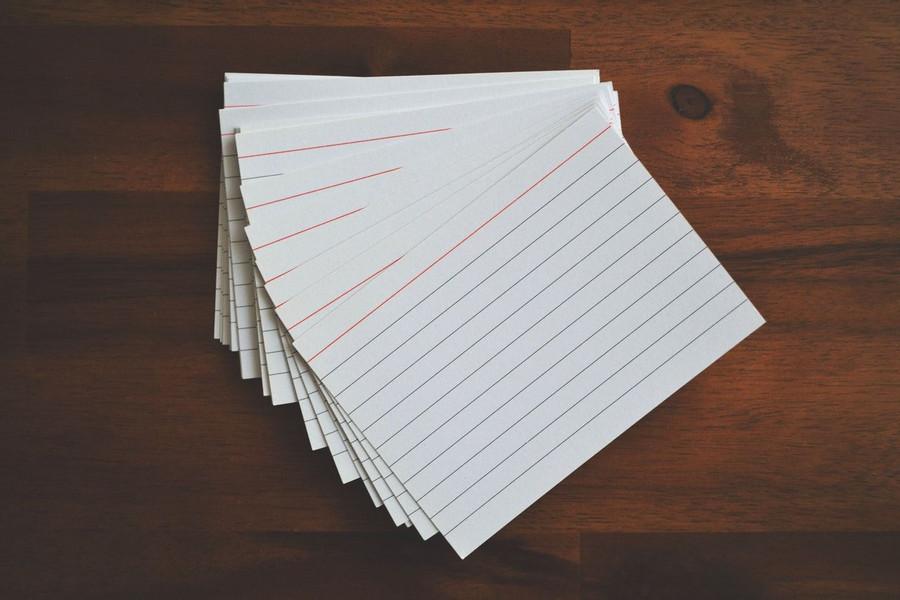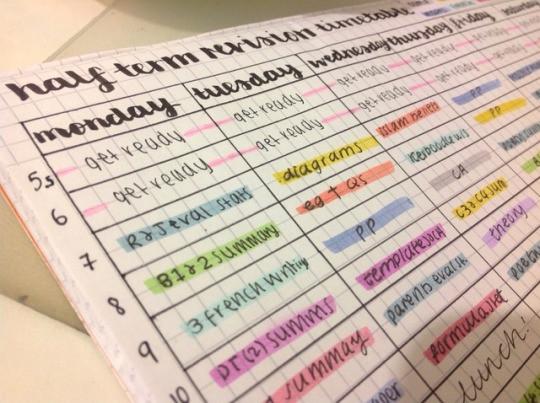How I ranked 1st at Cambridge University - The Essay Memorisation Framework
Curated from: Ali Abdaal
Ideas, facts & insights covering these topics:
9 ideas
·33.8K reads
269
4
Explore the World's Best Ideas
Join today and uncover 100+ curated journeys from 50+ topics. Unlock access to our mobile app with extensive features.
The Essay Memorization Technique
There are two stages to this method:
- The creation stage: the objective is to generate high quality essay plans for every possible title that you could receive in an exam.
- The memorization stage: transfer all of these essay plans to memory by methodically using active recall, spaced repetition, spider diagrams, and flashcards.
Benefits of this technique: you will be able to memorize so many essay plans by the time your exam is due, that a lot of these will come up at the exam anyway (or similar ones, so you'll have the possibility to compile bits of the memorized information to generate great essays from scratch).
880
6.59K reads
Essay Memorization: The Creation Stage
There are aspects questions to keep in mind at this stage:
- How you decide what essay titles to choose and prepare.
- How you plan the essays.
- How you make sure your essay plans are high quality.
728
5.37K reads
Picking Up Essay Titles
- Explore the subject and find essay titles that cover the entire breadth of the syllabus.
- Keep in mind past essay titles.
- After you've covered those up (and gained a deeper understanding of the subject), put yourself in the shoes of the examiners and imagine what they could ask you.
721
4.06K reads
Designing The Essay Plan
- Start with a question.
- Use Google to get as much information as you can about that particular question (articles, review papers, everything that could answer your question). Keep all the information in a research document.
- Create the plan and start developing its sections.
- Look at the lectures and recommended reading list and finish your essay.
- Give yourself one day to do this for each essay (keep in mind Parkinson's Law: work expands to fill the time you allocate to it).
780
3.45K reads
Making Sure You Have A Good Essay Plan
The three things that count:
- Structure
- Actually answering the question
- Adding your personal touch, the elements that spice up the whole thing.
The introduction is the essential part because you are signaling to the examiner that you are doing all these things.
730
3.15K reads
The Essay Memorization Stage
The objective of this stage is to transfer all your essay plans into your brain so that you can use them later during the exam.
Useful techniques:
- ANKI flashcards
- Spider diagrams
- A retrospective revision timetable.
750
3.23K reads
ANKI Flashcards
- These flashcards are blocks of content that can insert into the essays you have planned. They also work for essays you have not prepared in advance: you have blocks of knowledge in your head that you can put into your new essay.
- Everything that is in your ANKI is going to get uploaded into your brain.
- Use them to memorize the paragraphs of your essays.
- Use keywords at the front of the cards: for example, the title of a paper you are going to discuss in your ANKI, a theory, or a concept.
735
2.6K reads
Spider Diagrams
- Using the memorized content blocks of the ANKI flashcards, you can build spider diagrams.
- You have the whole structure of the essay and the keyword in your diagram.
- Follow the same process for all your essay title. Put a date on each page.
- Use 1 page for each essay.
- You have to draw your essays from memory; if there are things you don't remember, actively work on those.
- This is a great way use active recall to ensure you know everything for the exam.
- Before the exam, you can browse through your diagrams.
737
2.45K reads
The Retrospective Revision Timetable
This is the last step towards effective memorization and it involves systematic spaced repetition. You can do it by using a retrospective timetable.
This technique involves creating a spreadsheet that starts with a list of subjects, topics or essays that you have put together and then inputting the dates on which you study those areas as well as color code the system to provide a visual representation as to which areas we might need to cover again.This method will give you an image of your progress and an overview of how well you know your essays.
737
2.94K reads
IDEAS CURATED BY
Life is like facebook. People will like your problems & comment, but no one will solve them because everyone`s busy updating theirs.
James E.'s ideas are part of this journey:
Learn more about productivity with this collection
Effective note-taking techniques
Test-taking strategies
How to create a study schedule
Related collections
Similar ideas
5 ideas
Why Motivation is a Myth
Ali Abdaal
10 ideas
7 Side Hustle Ideas for Students
Ali Abdaal
1 idea
What Makes People Successful?
Ali Abdaal
Read & Learn
20x Faster
without
deepstash
with
deepstash
with
deepstash
Personalized microlearning
—
100+ Learning Journeys
—
Access to 200,000+ ideas
—
Access to the mobile app
—
Unlimited idea saving
—
—
Unlimited history
—
—
Unlimited listening to ideas
—
—
Downloading & offline access
—
—
Supercharge your mind with one idea per day
Enter your email and spend 1 minute every day to learn something new.
I agree to receive email updates





